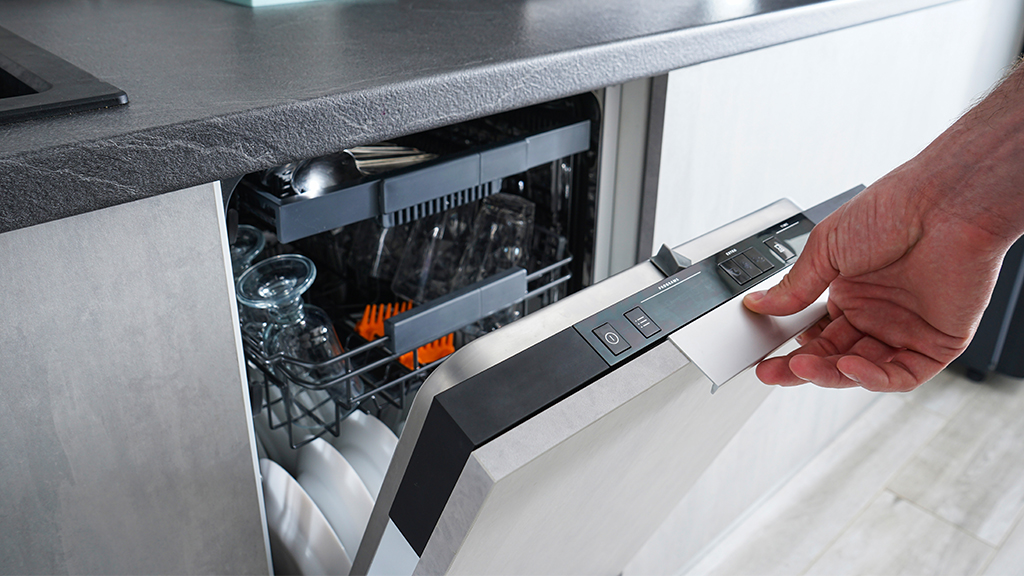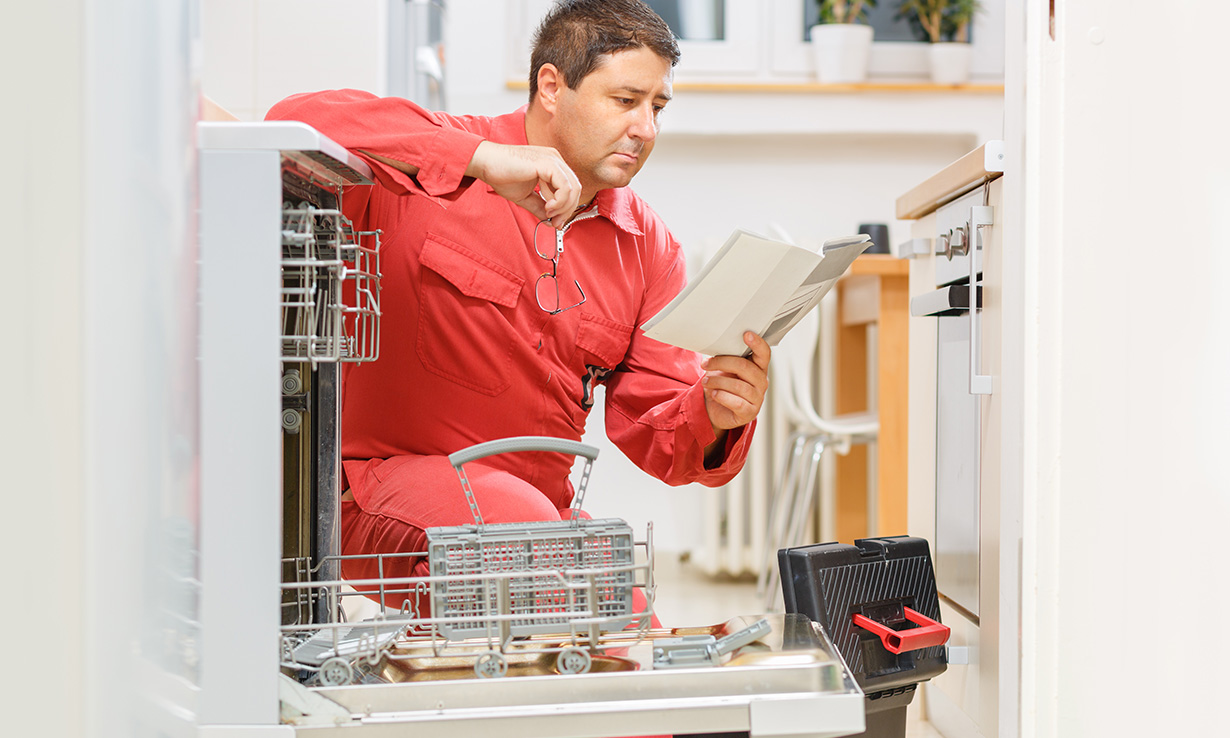This post down below about How to Troubleshoot & Repair a Dishwasher is truly enjoyable. Give it a try and make your own final thoughts.

Having your dishwasher malfunction or malfunction can be a big deal and create some discomfort in your home. Dishwashers are machines that we make use of to clean meals and also flatwares automatically to conserve us the tension of by hand doing it.
Like every other device that alleviates human effort, dishwashers can break down and also create some fault at some time in time. There are numerous faults your dishwashing machine could create, and while a few of them can be addressed by changing some components or fixing them, other extra extreme issues will certainly require that you get a brand-new dishwasher.
This article will determine a couple of common faults your dishwasher can develop to hinder its total performance and also just how these mistakes can be resolved.
Usual Mistakes
Common dishwasher faults could range from small to significant ones. Depending upon the extent, you will certainly either need the solutions of expert plumbings to repair or replace it.
Some of one of the most usual faults consist of:
Dripping Dishwasher
This is probably one of the most everyday dishwashing machine problem, and the good news is that it is easy to determine. Leakages happen because of several factors, as well as the leaks can ruin your cooking area. Typical root causes of dishwasher leakages consist of;
If your recipes and also flatwares appear of the dishwashing machine and also still look filthy or dirty, your spray arms might be a problem. In many cases, the spray arms can obtain clogged, as well as it will certainly call for a quick clean or a substitute to function successfully once again.
Failure to Drain pipes
In some cases you might observe a large amount of water left in your bathtub after a wash. That is most likely a drainage trouble. You can either examine the drainpipe hose pipe for problems or blockages. When in doubt, contact a professional to have it checked and fixed.
This is one more typical dishwashing machine trouble, and it is generally caused by food particles or oil lingering in the equipment. In this situation, seek these bits, take them out as well as do the dishes without any recipes inside the equipment. Wash the filter thoroughly. That will certainly help eliminate the poor odor. Make sure that you remove every food particle from your dishes prior to transferring it to the machine in the future.
Verdict
A few of these usual dishwashing machine mistakes can be fixed quickly in the house, but sometimes, the mistakes could be substantial and also might call for the interest of specialists. If you reside in Rochester, Syracuse, and other parts of America, let the professionals effectively diagnose what could be incorrect with your dishwashing machine and proffer a remedy.
We also install dishwashing machines if you just acquired a brand-new one or intend to replace your own. With our many years of experience in the industry, we are sure to offer you the most effective feasible solutions.
7 Common Dishwasher Problems (and How to Fix Them)
Dirty, smelly, possibly covered in cheese. Is there anything more frustrating than opening the dishwasher only to find the dirty dishes are still there?! I mean, the main reason you buy a dishwasher is so you don’t have to deal with dirty dishes. C’mon dishwasher, you had one job.
A little maintenance goes a long way when it comes to appliances, but the truth is nothing lasts forever (sadly). That doesn’t mean it’s hopeless, though. With a handful of simple tricks, you can fix some of the most common dishwasher problems and bring that sparkle back into your dishwasher and back into your life.
My Dishes Are Still Dirty
This is at the top of a list for a reason. Dirty dishes are common and frustrating. Easy fixes first; check if your dishwasher has a manual filter and make sure that it’s clean and clear of debris. Then, as you load your dishwasher, make sure that the spray arms can rotate freely, spraying water throughout the drum. If they’re blocked or obstructed, you won’t be getting optimal cleaning performance. If the problem continues, check if your spray arms are clean and moving freely as grease and food particles can prevent them from spinning.
Also, stop pre-rinsing your dishes! Modern dishwashers use sensors to determine the soil level of the dishes. If you rinse them off too much, your dishwasher may select a shorter cycle than is necessary. Modern detergents also use enzymes that activate when they come in contact with food particles. If you remove the particles, your detergent will be less effective too.
My Dishes Aren’t Drying
The easiest fixes here are to add Rinse Aid to your dishwasher when you start the load to assist drying, and to make sure you don’t stack plastic against plastic or other hard to dry materials. It’s also a good idea to open the dishwasher door when the cycle is complete to release steam and prevent condensation from settling on your dishes (some higher-end machines even open automatically). If your dishwasher has a heating element, you may have to check if it is working properly. Check also the fan if your dishwasher has a stainless steel tub that uses blown radiant heat to dry.
My Dishwasher Smells Bad
If your dishwasher smells bad, make sure your filter and screens are cleaned of any grime and food residue. Check the spray arms and gasket on the door to make sure there’s no grease or food waste there as well. If you’ve done that, then it may just be time to sanitize the drum. Place a small bowl with vinegar in the upper basket of your empty dishwasher and run the sanitize cycle (or the hottest cycle you’ve got) to blast away bad odours.
My Dishwasher Won’t Start
If your dishwasher won’t start there’s often an electrical problem, and if you’re lucky that means there’s a very easy fix. Ask yourself, have I tried turning it off and on? If not, then do that. If it’s still not working, try unplugging and re-plugging in the machine and double-check your breaker to make sure power is feeding the unit. If it’s a mechanical problem, then it may be that your door isn’t latching properly and a simple realignment will get things sorted out.
My Dishwasher Won’t Fill
If possible, check your intake valves and make sure that the screen is clear and that there’s no blockage obstructing water flow. If that’s not it, then the float and/or float switch located at the bottom of the drum could be the problem. Make sure that the electrical connections are intact and that the mechanism hasn’t been damaged or blocked in any way.
https://www.wardells.ca/blog/7-Common-Dishwasher-Problems--and-How-to-Fix-Them-

Do you enjoy reading about Common Dishwasher Problems? Post a review further down. We would be interested to see your opinions about this post. In hopes that you come back again before long. Enjoyed reading our article? Please share it. Help somebody else discover it. We cherish reading our article about How to Troubleshoot & Repair a Dishwasher.
Solve it now, dial here!